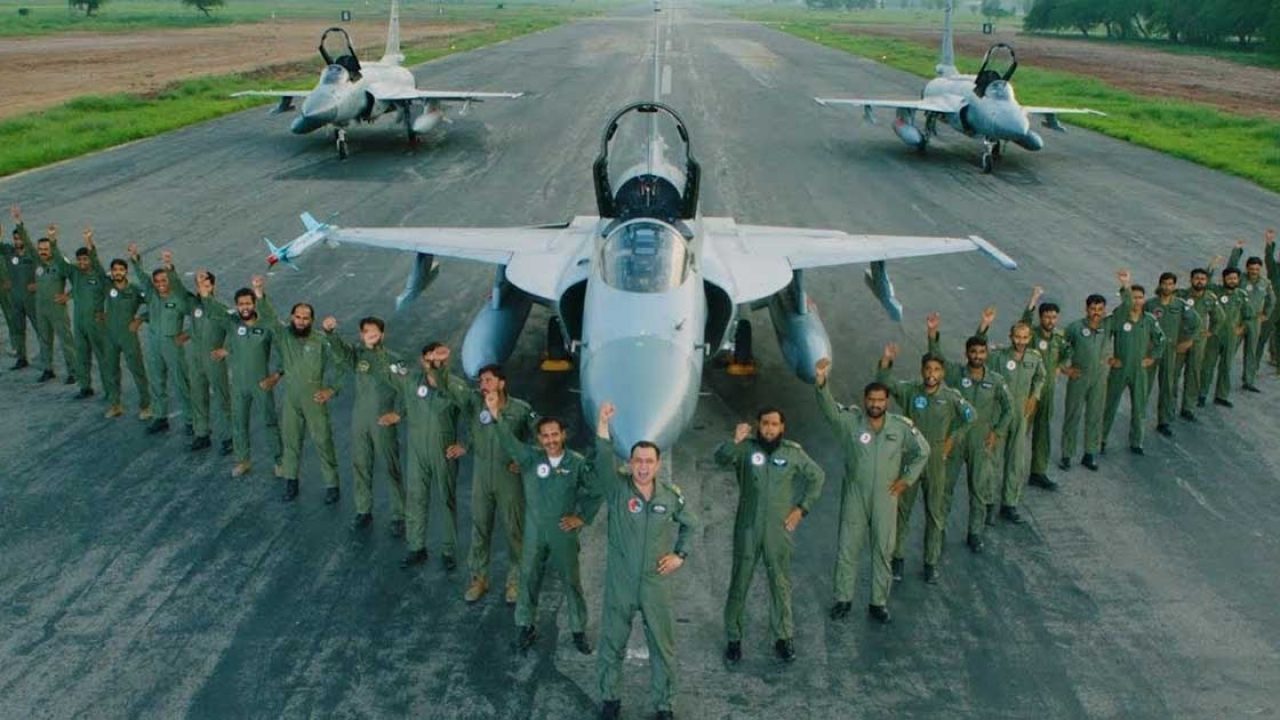After September 7, 1965, the Pakistan Air Force is marking February 27 as another day of pride following its resounding victory over the Indian Air Force in Operation Swift Retort in 2019. Exactly two years ago, the Indian Air Force launched punitive air strikes on Pakistan’s small district of Balakot in the province of Khyber Pakhtunkhwa in the aftermath of the Pulwama incident in which 44 Indian soldiers died in a suicide attack by a Kashmiri youth. New Delhi held Jaish-e-Mohammad (JeM) responsible for the terrorist attack and carried out Operation Bandar on February 26, 2019.
In the early hours of the day, Indian Mirages illegally entered Pakistan’s air space and fired Israeli origin Spice 2000 guided bombs on alleged JeM “terrorist camps”, and subsequently declared that they had killed 300-350 terrorists who had executed Pulwama. Pakistan and independent international media sources found this claim to be false. While the air strikes did take place, no on-ground damage except for a few trees and a crow was done. Since PAF aircraft scrambled, the Indian planes returned back, releasing their payload in haste and missed their target.
Pakistan expressed serious concerns about this blatant effort to undermine its sovereignty and pledged a matching response to such belligerent posturing during the National Command Authority’s meeting convened the same day. The next morning, Pakistan Air Force launched Operation Swift Retort in which it targeted the adjacent open fields of the Indian Army’s 25th Division Headquarters ammunition and supply depot at the time when the Indian Army Chief was present there. On their return, the PAF Falcons intercepted MiG-21 Bisons and Sukhoi-30s approaching to chase them but in a dogfight of several seconds, PAF fighters shot down the MiG-21, resulting in the capture of its pilot Wing Commander Abhinandan who ejected the jet and was captured by Pakistani soldiers.
Since 1971, this was the first time that both air forces entered each other’s territory and carried out kinetic strikes. The Indian action reflected the Bharatiya Janata Party (BJP)’s extremist mindset and arrogance that was severely busted on February 27, 2019. While numerically weak, the Pakistan Air Force reaffirmed its professionalism and unwavering resolve to challenge any attempt to alter the status quo. Capturing the Indian pilot and showing the debris of the crashed MiG-21 inside Pakistan’s territory offer irrefutable evidence of the Indian fiasco. New Delhi’s dream to establish a “new normal” received an excruciating blow on that day. The whole episode seemed to be staged with the intend to push Pakistan towards embracing a submissive posture. Prior to this, the Narendra Modi Government had claimed that it had conducted a surgical strike on Pakistan’s side of the border after the Uri incident in 2016 which Islamabad outrightly rejected as false Indian propaganda.
Just for a comparison, the Indian strikes were conducted in the darkness of the night, whereas Pakistan’s response was in broad daylight with no room for twisting the facts. While Narendra Modi tried to secure political gains in the form of a second term in power, India strategically lost a great deal in the aftermath of Operation Swift Retort. Its war-fighting capabilities – pivoted on air power – were blunted without a fight. Even voices in India started to buzz about the Modi’s false planning and cast doubts on Indian military preparedness vis-à-vis its obsolete aircraft inventory. The aerial dog-fight revealed Indian mismatch between its military capabilities and ambitions of assuming hegemonic role in the region.
This realization among Indian strategic architects and policy circles hastened the procurement process of French-made Rafale aircrafts, of which the Indian Air Force now has five in its fleet. The thinking in India is that that these Rafale twin-engine multirole combat fighters will provide its Air Force an edge over PAF’s F-16 and JF-17 Thunder during any future air encounter. IAF is expecting delivery of 31 more aircraft by the end of 2022, and the general sense is that India might test Pakistan’s defense apparatus again. As a responsible state, India must act wisely while calculating Pakistan’s response to any misadventure. Risking regional peace will earn New Delhi humiliation in the form of befitting response from Pakistan. India’s dream of subjugating Pakistan under its hegemonic designs will turn into a nightmare. Such provocative actions by India provide Pakistan the opportunity to project its responsible statehood and image as a peace-loving nation. Returning the downed Indian pilot to his home country is a clear example of that.
Hasaan Tahir is a researcher at the Centre for Aerospace & Security Studies (CASS). He can be contacted at: [email protected]





